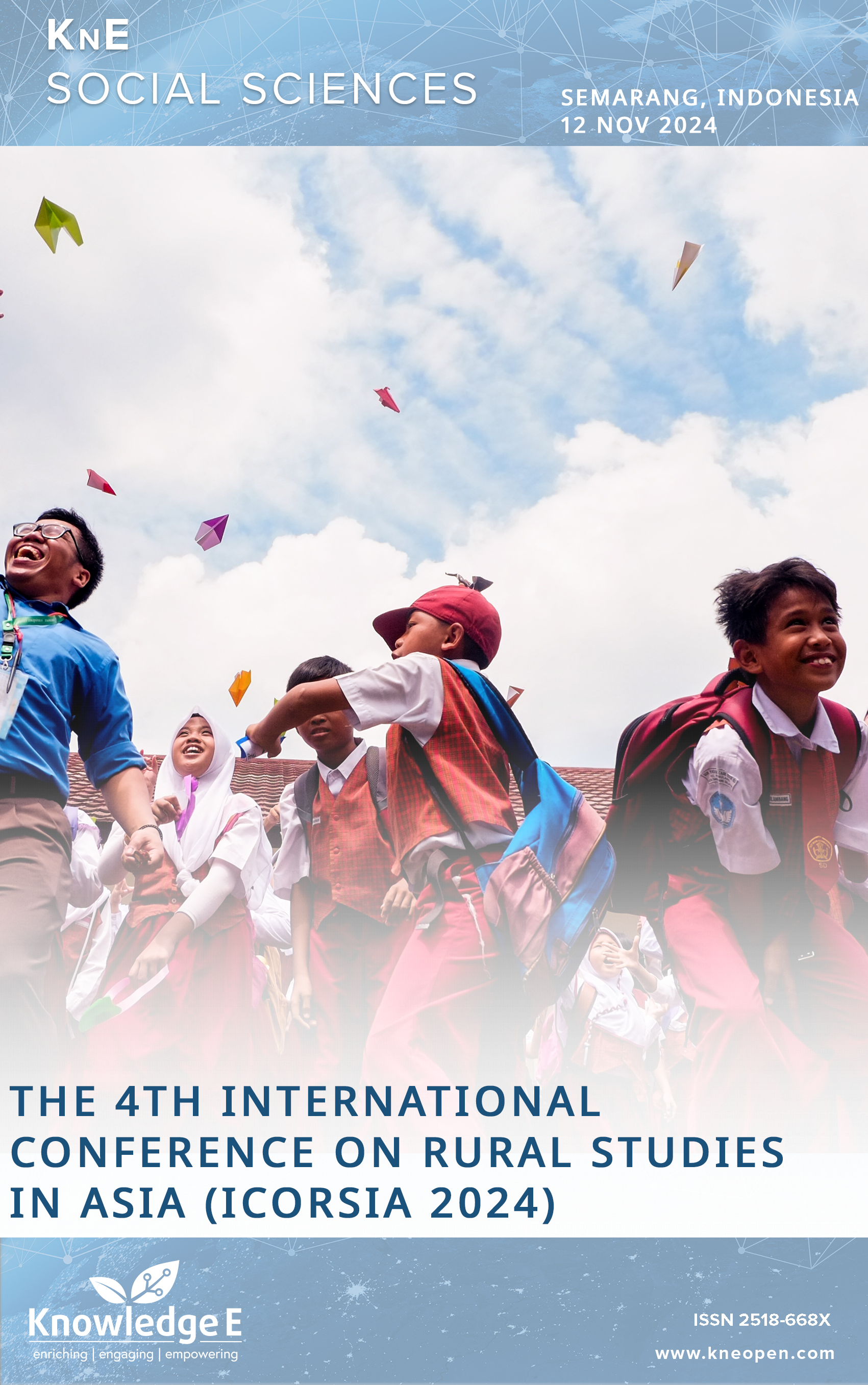Eco-Edutainment: Learning Social Studies Through Fun Experiences
DOI:
https://doi.org/10.18502/kss.v10i10.18678Keywords:
eco-edutainment, learning, social studiesAbstract
This study examines the real-world implementation of joyful social studies (IPS) learning through an eco-edutainment approach as an innovative method to enhance students’ environmental understanding and awareness. Using a qualitative research design based on the Miles and Huberman model, data were collected through interviews, observations, and documentation. Informants included social studies teachers, students, the chair of the Social Studies Subject Teacher Forum (MGMP IPS), and principals from several junior high schools in Semarang Regency. The findings reveal that the eco-edutainment approach fosters a more interactive and enjoyable learning environment and significantly enhances students’ understanding of environmental issues such as climate change, natural resource conservation, and waste management. Additionally, this approach promotes a shared sense of responsibility among students to care for the environment as part of their everyday lives. The study recommends further development of eco-edutainment-based learning models to support long-term environmental awareness and sustainable educational practices.
References
Kintoko K, Mulianingsih F. Membangun karakter peserta didik SMP Bangka Barat melalui literasi digital di tengah pendidikan abad 21. J. Terap. Abdimas. 2022;7(1):106–13.
Risqiyah UN, Mulianingsih F. Pengaruh media vlog (video blogging) mitigasi bencana covid 19 terhadap hasil belajar IPS SMP N 02 Randudongkal Pemalang. Sosiolium J. Pembelajaran IPS. 2022;4(1):39–42.
Purnani SN, Mulianingsih F. Implementasi pembelajaaran IPS berbasis kearifan lokal di SMP Negeri 2 Jatinom Kabupaten Klaten. Sosiolium J. Pembelajaran IPS. 2020;2(1):35–9.
Kestenbaum A, Fleischman CA, Dabis M, Birnbaum B, Dunn LB. Examination of Spiritual Needs in Hurricane Sandy Disaster Recovery Through Clinical Pastoral Education Verbatims. J Pastoral Care Counsel. 2018 Mar;72(1):8–21.
Erlingsson C, Brysiewicz P. A hands-on guide to doing content analysis. Afr J Emerg Med. 2017 Sep;7(3):93–9.
Prasadi AH, Wiyanto W, Suharini E. The Implementation of Student Worksheet Based on STEM (Science, Technology, Engineering, Mathematics) and Local Wisdom to Improve of Critical Thinking Ability of Fourth Grade Students. J. Prim. Educ. 2020;9( 3):227–37.
Nursaptini and A. Widodo, “Urgensi Penguatan Pembelajaran IPS di Sekolah dalam Menghadapi Tantangan Globalisasi dan Keanekaragaman Budaya,” J. Pendidik. dan Konseling. 2022;vol. 4, no. 3, pp. 1097–1102.
Bullock EC. Intersectional Analysis in Critical Mathematics Education Research: A Response to Figure Hiding. Rev Res Educ. 2018;42(1):122–45.
Zong G. Integrating global sustainability into social studies teachers’ education: a collaborative self-study. Soc Stud Res Pract. 2022;17(1):94–113.
Widiana IW, Tegeh IM, Artanayasa IW. The project-based assessment learning model that impacts learning achievement and nationalism attitudes. Cakrawala Pendidik. 2021;40(2):389–401.
Mulianingsih AJ, Anwar K, Shintasiwi FA, Rahma AJ. Artificial Intellegence dengan Pembentukan Nilai dan Karakter di Bidang Pendidikan. Ijtimaiya J. Soc. Sci. Teach. 2020;4(2):148–54.
Mulianingsih AP, Purnomo A, Nirwansyah AW, Arvianto ZI. Literasi Mitigasi Bencana dalam Pembelajaran IPS. Edu Geogr. 2024;12(2):110–5.
Ferdianita NF, Mulianingsih F. Analisis hambatan guru IPS dalam pembelajaran jarak jauh dampak pandemi covid-19 Di SMP/MTs Kecamatan Gebog Kabupaten Kudus. Sosiolium J. Pembelajaran IPS. 2021;3(1):50–62.
Awalludin Nugraha Y, Handoyo E, Sulistyorini S. Traditional Game on The Social Skill of Students in The Social Science Learning of Elementary School Article Info. J. Prim. Educ. JPE. 2018;7(2):220–7.
Winarso W. Dasar Pengembangan Kurikulum Sekolah. Confident; 2015.
Faozi A, Santoso AB. Strategi Pengembangan Objek Wisata Goa Petruk Kecamatan Ayah Kabupaten Kebumen. Geo Image. 2020;9(1):72–8.
Asy’ari NK, Santoso AB. Implementasi Metode Inquiry Pada Pembelajaran Jarak Jauh Materi Lithosfer Siswa Kelas X IPS di SMA N 1 Sulang Kabupaten Rembang. Edu Geogr. 2021;9(3):237–45.
Santoso AB, et al. “ The Utilization of Technology-Based Webgis as an Effort to Establish the Spatial Thinking Ability of Geographic Students In High School, ” Proc. 6th Int. Conf. Educ. Soc. Sci. (ICESS 2021), vol. 578, no. Icess, pp. 21–25, 2021.
Published
How to Cite
Issue
Section
License
Copyright (c) 2025 KnE Social Sciences

This work is licensed under a Creative Commons Attribution 4.0 International License.

